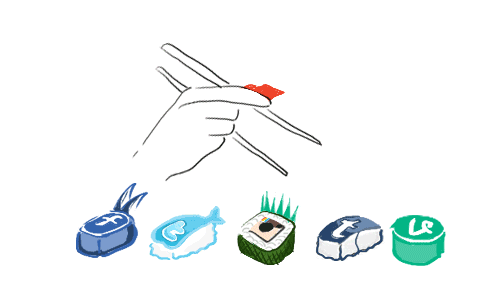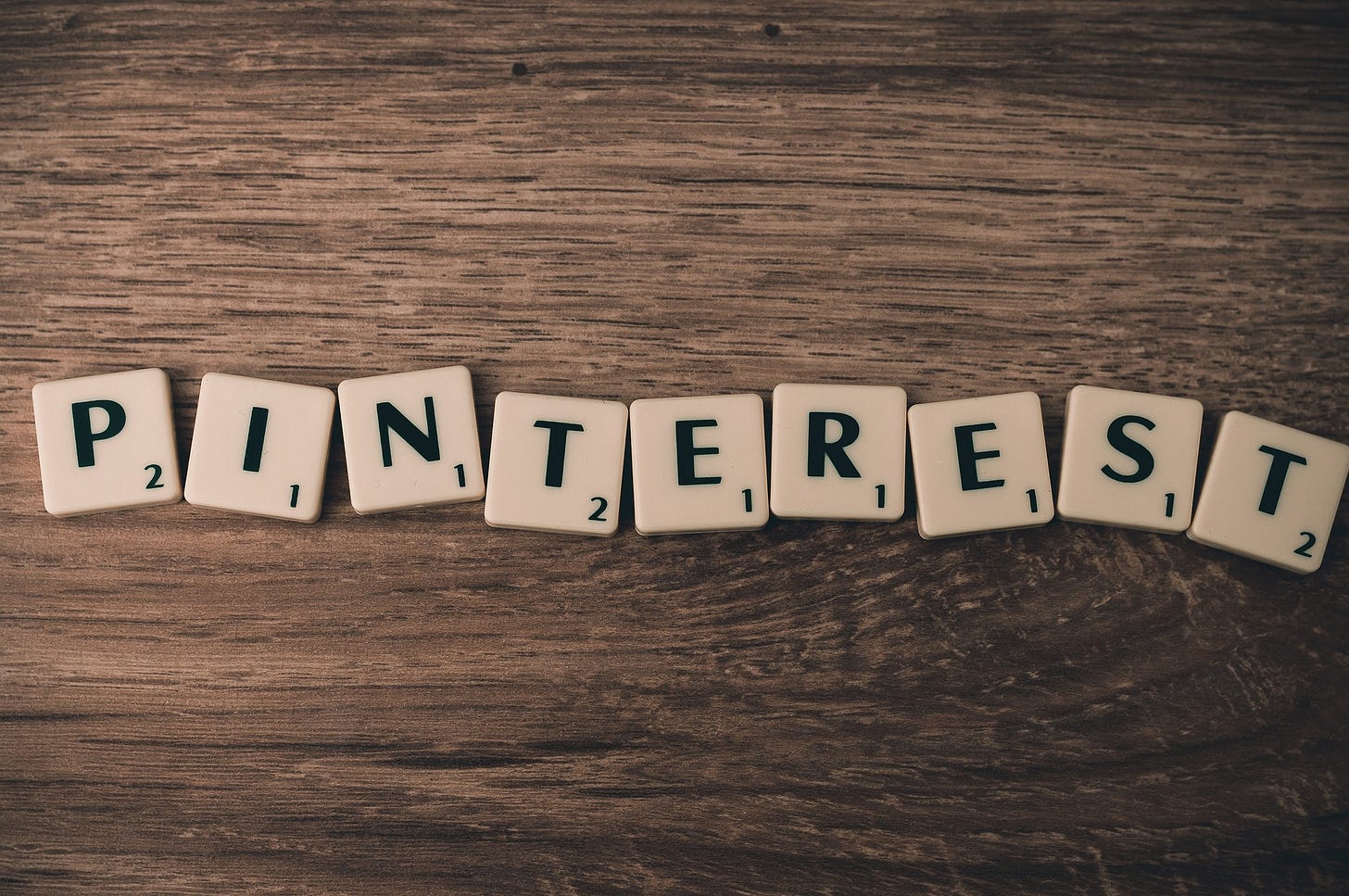In an ever expanding and ever interconnected digital world, it is becoming more and more important for writers to have some sort of online presence. An author’s platform is one of the most valuable things for a writer because it is something you own and control. It doesn’t belong to your employer or your publisher—you control the message, what the message is and where the message is amplified. Social media can be used for a multitude of reasons, from promoting yourself and your books and it can be used to communicate with your audience and ultimately grow it.
I know social media is not everybody's cup of tea: some people actively dislike it and are even indifferent to it. However, I would recommend creating a social media presence to anyone who is interested in publishing in any capacity or wants to publish a book, whether it be traditionally published or self-published.
Websites are useful and there are several options to pick from to help build it including Squarespace, Wix and WordPress. For those who do want to build their author platform and grow their digital footprint beyond or without a website, there are several options for you to use.
Twitter
Arguably the most popular social media platform in the world. The publishing industry lives here and generally this is the social media tool where most people in the industry have major parts of their presence. Twitter is a simple but effective way to interact and network with others, to strike up a conversation with fellow writers, find online and offline events to attend, build a community and find a tribe of like-minded people to engage with. Learning from others is one of the most powerful things I have personally encountered on Twitter. I have learnt so much insider knowledge about the dynamics of publishing and writing by watching threads, following relevant people and peeking in on the many conversations between agents, editors and other publishing professionals.
Twitter Tips
Follow people (writers and publishing professionals), writing publications, publishers and book organisations on Twitter—this will help to submerge you into the infinite numbers of conversations going on about publishing
Use hashtags, great ones to use include #amwriting #writingcommunity. For your own projects, coin your own hashtags, e.g. a crime series featuring a detective called Jessica James, #jessicajames or #jjseries would work well
Instagram
Instagram provides a visual journey for users and is another vital place to make a splash via social media. Everything is accomplished through the power of images. Engagement is key here, using crafted digital assets such as photos and videos to attract viewers to you. A few suggestions on things you can share with your audience include images of your writing space, character/setting inspirations, what you are reading at the moment, your bookish items and a tour of your bookshelf.
Instagram offers the opportunity to connect with others all through visual content; hashtags are a way to help people find your images when they are searching for things. Use them and research which hashtags are currently popular before you post. Being authentic on Instagram is essential to allowing your feed to feel natural and personal—this helps to build trust and attract followers. Never overshare or share things you are not comfortable with your audience seeing. To this, I recommend sharing travel images, delicious looking foods you have eaten, your hobbies beyond writing and what music, TV shows and movies you are into at the moment to name a few. All of these are great things to share with your followers. Pets go down well so if you have a cat or dog or some other unorthodox creature, get some shots of them looking cute.
Instagram is also a brilliant marketing tool to reach readers since the book community is extremely popular on Instagram. Book cover reveals, giveaways, competitions, pre-order campaigns, excerpts from your work are great things to share in the lead up to your book release. Canva is a brilliant way to professionalise your digital assets, you can use it to create graphics for Instagram and other social media platforms. Canva has many designs you can play with. For this blog, I create graphics and I share them with my followers via Instagram, so I cannot recommend it enough.
Instagram tips:
Get a business account because you can see all of your analytics of all who follow you, you can also potentially do more specific targeting such as ads.
Don’t forget to @ organisation or places you go if they have an Instagram page, companies love this and frequently add your images to their stories which gets you a bigger viewership and more engagement on your posts.
You can retweet/reshare other people’s images using Repost
Utilise Instagram Stories
#bookstagram is a great hashtag to follow on Instagram to smoothly integrate yourself into the book community on social media.
Facebook
Facebook is a popular choice for authors to create a space for where their readers gather in a community of your making. This is done through the creation of an author page, which acts as a personal space for your following. Authors use their pages to promote their work, share reviews and excerpts, run giveaways, run events and book launches. For writing purposes, there are writing groups and other special interest groups that people can join to have conversations, share and impart advice as well as ask questions.
Facebook Tips:
Join writing Facebook groups
If you are going to use Facebook adverts to market yourself or books, research properly and get to grips with the ads manager. There is plenty of information about on how to give your ads the best opportunity to succeed and reach your target audience.
Your Facebook Page is public, anyone can see it. Remember this when you post—keep your private page (if you have one) separate from your public page
Pinterest
My personal favourite, I am obsessed with this one. It is such a powerful tool in the writer’s toolkit for its myriad of uses which include inspiration and mood-board creation for your writing projects, meeting with other writers and joining group writing boards. My personal favourite is the fact there is plentiful guidance in the forms of pins on every single element of writing and storytelling in all genres, age groups and different styles of writing from scripts to poetry. Beyond assisting with your writing process, Pinterest can be used to market yourself and your books.
Pinterest Tips
Follow Pinners who create great writing pins filled with lots of useful writing knowledge like Savannah Gilbo, K.M. Weiland, Now Novel, Kristen Kieffer, Chris La Porte, Mixtus Media and Mythcreants
Consider creating a Pinterest Business Account – You can explore Pinterest Analytics and launch ads which can generate lots of engagement and impression on your pins
Create boards with eye-catching images for the viewer to get lost in, keep your boards organised, pin regularly and follow other relevant and interesting pinners.
See my earlier post about Pinterest here for more guidance on using Pinterest
In conclusion, social media is flexible, allowing you to be as heavy or light as you want to be. You do not need to use all of these tools. Pick the ones which suit you and your needs, use the tools which you feel you can excel in and actually enjoy. Strive for organic growth, slow and steady always wins the race.
My final pointers:
Be practical and don’t spread yourself too thin
Figure out how you can add value to your followers and the people you want to reach
Remember to be genuine
Be productive and to this end I highly recommend using social media schedulers like Hootsuite, Tailwind and Buffer
There are optimum times to post across all different social media platforms—Google search and you will see when the best time to post is.
Bonus Tip: For loads of specific book marketing advice, look at Bookbub Partners Blog
Which social media do you currently use? Which ones are your favourite? Please share in the comments section.
Thank you for reading Writersphere and I hope you enjoyed the newsletter. Please do share this newsletter with those you think will enjoy.
— Davina Tijani (@dee_tijani)








